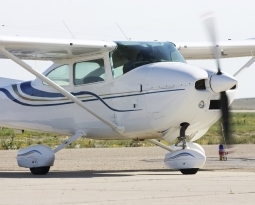Florida Patent of the Month – July 2020
Florida based tech company Magic Leap has developed a head-mountable augmented reality (AR) display system that can perform neurological analyses. It does this by assessing its users’ reaction to stimulus and identifying a neurological condition associated with that reaction (through sensors on the device). It can assess neurological conditions, including visual processing conditions, such as limited peripheral vision, memory loss, etc.
AR systems may display virtual content to a user, or viewer, while still allowing the user to see the world around them. On a head-mountable device, they work like eyewear in allowing users to see their environment, but also display virtual content. In this devices, the display system provides stimuli (e.g. pre-selected visual and/or audio content), to the user and measures the user’s reaction to that content using sensors. Or, the system can also asses the real environment it is in (e.g. landscapes, other people, etc) and, if it determines that this environment is appropriate, may simply measure the users’ reaction to this. The software within the device allows it to correlate stimuli and reactions to neurological conditions.
The AR is used to determine if the neurological condition exists, and can also be used to address or treat the condition. Magic Leap intends to use it in a number of ways, including:
- Diagnostic, therapeutic, and/or monitoring purposes: this device would be able to diagnose a condition and also retest users multiple times. Users and physicians could assess the users’ mental health overtime and progress made on treatment plans. For example, it may assist in determining the effectiveness of a treatment/aid given to address the condition.
- Treatment purposes: this device could be used as a mental exercise or activity. For example, the display system may be configured to function as a learning aid, and various “mind exercises” may be provided by the display system. With this, stimuli could be manually adjusted by physicians, or the device could perform consistent assessments and update stimuli based on the biofeedback results.
Are you developing a new product or process? Did you know your R&D experiments could be eligible for the R&D Tax Credit and you can receive up to 14% back on your expenses? Even if your development isn’t successful your work may still qualify for R&D credits (i.e. you don’t need to have a patent to qualify). To find out more, please contact a Swanson Reed R&D Specialist today or check out our free online eligibility test.
Who We Are:
Swanson Reed is one of the U.S.’ largest Specialist R&D tax advisory firms, offering tax credibility assessments, claim preparation, and advisory services. We manage all facets of the R&D tax credit program, from claim prep & audit compliance to claim disputes.
Swanson Reed regularly hosts free webinars and provides free IRS CE and CPE credits for CPAs. For more information please visit us at www.swansonreed.org/webinars or contact your usual Swanson Reed representative.






